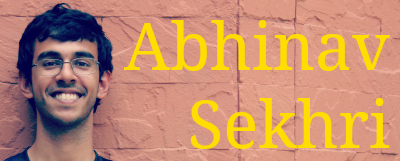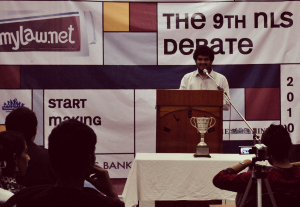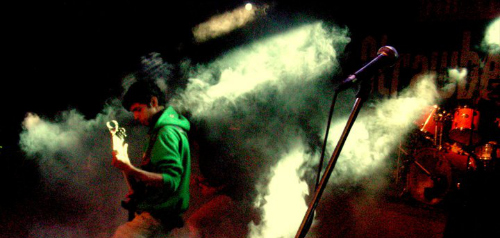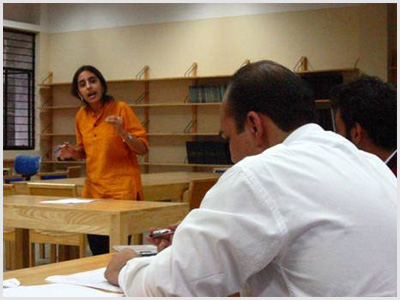 Hi there, freshers. I hope the first few weeks of law school have lived up to your expectations. I can imagine that you are just getting used to the new sights, sounds, and smells (the hostel rooms, bathrooms, and nearby eateries included) that will become part of home for the next five years. Oh, and of course, the ‘positive interaction’ with the seniors, which at NLS Bangalore means that most of you would already have been asked about your claims to fame. I have already written about the library and the academic side of things at law school but there is a lot more. This post is about some of the many activities at law school that you can participate in and the committees that are part of them. I will cover moots and publications in my next post here.
Hi there, freshers. I hope the first few weeks of law school have lived up to your expectations. I can imagine that you are just getting used to the new sights, sounds, and smells (the hostel rooms, bathrooms, and nearby eateries included) that will become part of home for the next five years. Oh, and of course, the ‘positive interaction’ with the seniors, which at NLS Bangalore means that most of you would already have been asked about your claims to fame. I have already written about the library and the academic side of things at law school but there is a lot more. This post is about some of the many activities at law school that you can participate in and the committees that are part of them. I will cover moots and publications in my next post here.
Sports
 You must have seen the football field, the basketball and tennis courts and the gym around the campus. Soon, you will see some of your seniors out there playing hard and pumping iron quite regularly. If you love playing a sport, don’t let it die out. Not only is sport a great activity to make new friends, soon you will also realise that it is one of the best ways to take a break from the routine monotony of law school. A mention here of Spiritus, the annual law-school-only sports fest at NLS Bangalore. Wait till you get your first taste of it!
You must have seen the football field, the basketball and tennis courts and the gym around the campus. Soon, you will see some of your seniors out there playing hard and pumping iron quite regularly. If you love playing a sport, don’t let it die out. Not only is sport a great activity to make new friends, soon you will also realise that it is one of the best ways to take a break from the routine monotony of law school. A mention here of Spiritus, the annual law-school-only sports fest at NLS Bangalore. Wait till you get your first taste of it!
Literary activities and debating
 Law schools are some of the best colleges represented in the debating circuit in India, and abroad. It is perhaps one of the most popular activities on offer, and it can be a lot of fun. If you develop a taste for it, there’s nothing like it to help you think critically. This isn’t your school’s elocution competition where you remember a script and deliver a passionate speech on subjects like “the problem of inflation”. You have to think on your feet in twenty minutes on motions as straightforward as, “this House believes the Indian Parliament should reduce the age of juveniles” to not-so-straightforward ones like, “this House believes America’s right is wrong”. Debating also helps you develop any oratory talent you might have. I remember being in complete awe of the experienced seniors I watched debate in first year, fiercely arguing without any script before them. A seven minute speech is asked for, and boy is the first one hard to deliver. There is howver, nothing quite like the feeling of getting it right for the first time.
Law schools are some of the best colleges represented in the debating circuit in India, and abroad. It is perhaps one of the most popular activities on offer, and it can be a lot of fun. If you develop a taste for it, there’s nothing like it to help you think critically. This isn’t your school’s elocution competition where you remember a script and deliver a passionate speech on subjects like “the problem of inflation”. You have to think on your feet in twenty minutes on motions as straightforward as, “this House believes the Indian Parliament should reduce the age of juveniles” to not-so-straightforward ones like, “this House believes America’s right is wrong”. Debating also helps you develop any oratory talent you might have. I remember being in complete awe of the experienced seniors I watched debate in first year, fiercely arguing without any script before them. A seven minute speech is asked for, and boy is the first one hard to deliver. There is howver, nothing quite like the feeling of getting it right for the first time.
Cultural activities
If you lean towards the arts on the other hand, don’t worry. At least at NLS, we used to have singing, dancing, and theatre. A long time back, cultural activities were very popular in college, with people actively taking part in college fests around Bangalore. Over my five years of college though, cultural activities suffered a great deal. Perhaps the only two remaining relics are the theatre-fest Admit One, and Legala.  Like Spiritus in sport, a take on cultural activities would remain incomplete without mentioning Strawberry Fields, the annual rock show hosted by NLS Bangalore. Go, check out videos of previous editions on Youtube!
Like Spiritus in sport, a take on cultural activities would remain incomplete without mentioning Strawberry Fields, the annual rock show hosted by NLS Bangalore. Go, check out videos of previous editions on Youtube!
Fests and committees
 All of these activities are organised by committees in law school, and as first years, they all want you in them. Please remember though, that you don’t need to be on the debating committee if you like to debate. It’s the organising that committees handle, and as a first year you will be working together with seniors and getting to know them better. In fact, as a first year, you are expected to help in the ground-work for most of the fests that will happen over this year. This used to be an issue, as seniors weren’t always polite in asking the first years to help, as some considered it an obligation. There are no obligations, but please do see what it’s like before refusing to take part. Most of my classmates will never forget our first Spiritus. The 6 a.m. mornings, setting up venues, frantically drying up the basketball court with newspapers after those incessant Bangalore showers, and that awesome feeling at the end, when you know you made that great event happen.
All of these activities are organised by committees in law school, and as first years, they all want you in them. Please remember though, that you don’t need to be on the debating committee if you like to debate. It’s the organising that committees handle, and as a first year you will be working together with seniors and getting to know them better. In fact, as a first year, you are expected to help in the ground-work for most of the fests that will happen over this year. This used to be an issue, as seniors weren’t always polite in asking the first years to help, as some considered it an obligation. There are no obligations, but please do see what it’s like before refusing to take part. Most of my classmates will never forget our first Spiritus. The 6 a.m. mornings, setting up venues, frantically drying up the basketball court with newspapers after those incessant Bangalore showers, and that awesome feeling at the end, when you know you made that great event happen.
(Abhinav Sekhri is a fifth year student at the National Law School of India University, Bangalore. The previous articles in this series are here.)

